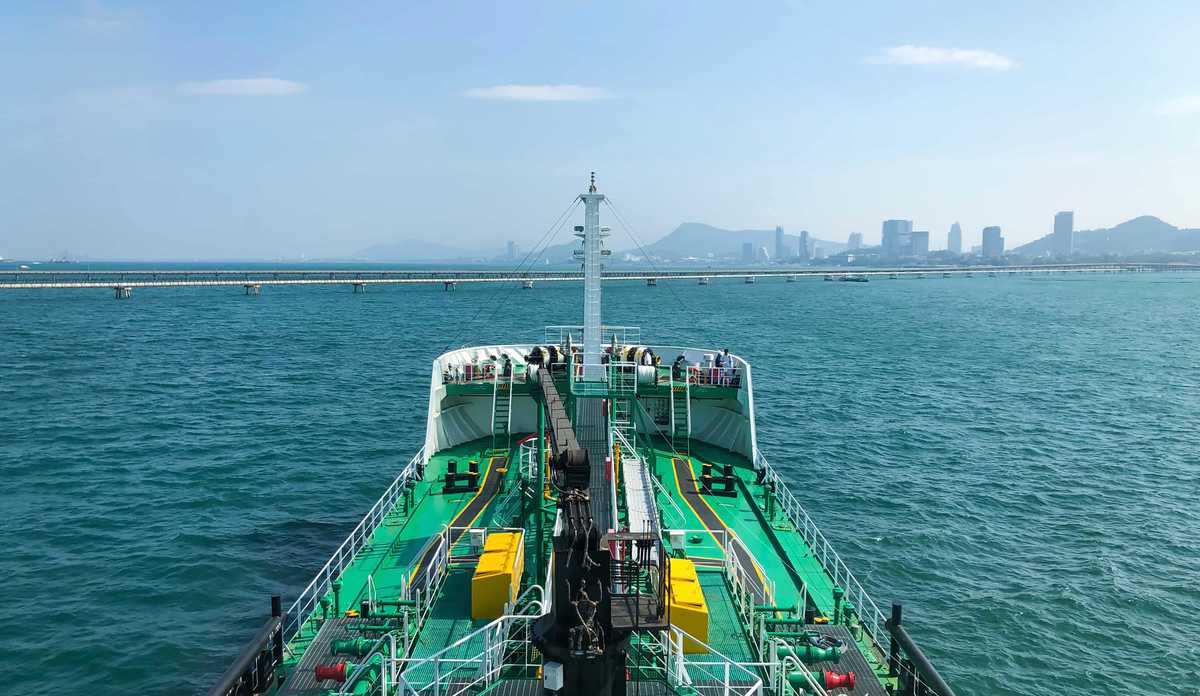Countdown to MEPC 80: IBIA warns that low-carbon fuel availability hinges on WtW approach
Industry organisations have urged the IMO to adopt a tougher CO2 reduction target for 2030 and to implement mid-term measures such as fund-and-reward systems.
 PHOTO: Deck shot of an oil tanker. Getty Images
PHOTO: Deck shot of an oil tanker. Getty Images
The Clean Shipping Coalition (CSC) has called on the IMO to set "ambitious science-based absolute emission reduction targets for the industry for 2030.”
CSC is a global alliance of shipping industry experts and policymakers from the IMO and climate non-profits like Transport & Environment and Carbon Market Watch.
In a proposal made to the shipping regulator ahead of its 80th Marine Environment Protection Committee (MEPC) meeting next month, CSC suggested a target of halving carbon dioxide (CO2) emissions and reducing methane emissions by 34% by 2030. This would send a “sure signal” of the IMO's commitment to decarbonisation, CSC said.
These interim targets would also align more with the global climate targets of the Intergovernmental Panel on Climate Change (IPCC) for 2030.
Bunkering industry support for well-to-wake
Meanwhile, the International Bunker Industry Association (IBIA), which represents global bunkering firms, has called for a well-to-wake (WtW) approach to assess GHG emissions from marine fuels. It says fuel suppliers need stronger demand signals and that more regulatory certainty around a WtW approach to fuels' lifecycle emissions would help deliver that.
"...true sustainability means taking full WtW life cycle emissions into account," IBIA said in one of its proposals to the IMO.
If the IMO continues with its more limited tank-to-wake (TtW) approach that would, by contrast, likely delay availability of low-carbon fuels, IBIA warns.
IBIA has submitted a separate proposal to the IMO in which it advocates for wet scrubbers that can clean exhaust gas onboard vessels before carbon is separated out, captured and stored. It says this can serve as a near-term technology to cut emissions in the absence of widespread low- and zero-carbon fuel availability.
The captured carbon can subsequently be recycled to produce synthetic fuels like e-methanol, or be permanently sequestered, IBIA suggests.
Onboard scrubber systems can remove nitrogen oxides, organic pollutants and carbon monoxide from vessels' exhaust. Combined with carbon capture systems that can capture approximately 40-90% of CO2 emissions vessels, scrubbers would allow vessels to drastically reduce their GHG emissions, argues IBIA.
“In the face of the challenges of achieving carbon-neutrality on a well-to-wake basis for marine fuels, removal of carbon before entering the atmosphere post-combustion appears to have at least short-term merits in meeting IMO ambitions to reduce GHG emissions from international shipping,” it wrote in its proposal to the IMO.
Fund and reward cleaner marine fuels - ICS
The International Chamber of Shipping (ICS), which represents international shipping companies, proposed a "fund and reward" market-based measure on the premise that this can help close the price gaps between renewable marine fuels and conventional oil-based fuels. This would boost alternative marine fuel uptake, it argues.
It also recommends other economic measures and technical standards to promote technologies such as carbon capture and storage to decarbonise shipping.
By Konica Bhatt
Please get in touch with comments or additional info to news@engine.online





